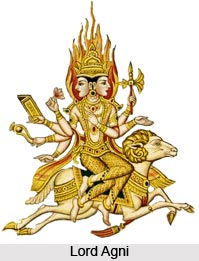

The hymns of the Atharvaveda can be classified into the following ten groups:ġ. These verses bring out the Vedic adoration of the earth and the immense value that the Veda attaches to the intimate relationship between the earth and the human fulfilment. Let the earth, bearing variously people of different speech, of diverse laws of development, (dharman), appropriate to their homes, yield (duh) to me a thousand streams of prosperity, like a steady (dhruva) unresisting milch-cow. Me the stuff of being, jewel, gold giver of good, bestowing good things on us, let the divine mother earth shower all this with her mind filled with grace. Let us study a few selected verses of this sukta: The prithivi sukta underlines the supra- physical basis of the physical. Apart from physical aspects of the earth, this sukta also declares that the stability of the earth and of physical consciousness is rooted in the superconscient, which is characterised by satyam, ritam and brihad, the true, the right and the vast. It is called " prithivi sukta", and is directly relevant to the contemporary concern for environmental harmony. But merely on this ground or similar other grounds, it is difficult to declare that the Atharvaveda is later than the Rigveda.Ī very important hymn of the Atharvaveda is related to the earth.

At the same time, it has been noted that the Atharvaveda presents a geographical and cultural picture of life, which is somewhat different from the one found in the Rigveda. According to another view, the phrase triple knowledge refers to Rik, Yajus and Saman mantras, and since they are to be found not only in the Rigveda, the Yajurveda and the Samaveda but also in the Atharvaveda, "triple knowledge" includes the Atharvaveda also. In support of this view, it has been pointed out that the Vedic knowledge has been referred to as triple knowledge, trayi vidya, consisting of Rigveda, the Yajurveda, and the Samaveda. It is against this background that theĪtharvaveda's references to the issues of human life can be rightly understood.Īccording to one view, the Atharvaveda is a later composition, later than the Rigveda, the Yajurveda and the Samaveda. The Veda does not teach escape from life and its problems, but analyses issues of life meticulously and reveals knowledge needed to deal with them so that the goal of fulfilment and immortality is attained. In the battle, the Veda requires human beings to know how these worlds are interrelated, and how the forces of these worlds, gods and demons influence them as helpers or adversaries. The Veda looks upon human life as a journey beset with difficulties and adverse forces human life is, therefore, a battle in which human soul is connected with the physical and supra-physical worlds. There are mantras concerning birth and death also. There are also prayers addressed to medicinal plants.
#Atharva veda hymn to the earth series
A series of mantras are related to practices designed to cure fever, nightmare, haemorrhage, toothache, serpent bite and madness. It recognises a number of diseases, and it attributes them not only to physical causes but also, and more importantly, to psychological causes, including Karma and influence of adversary forces. The Atharvaveda is believed to be the origin of Ayurveda, the Indian science of medicine. (ii) those relating to establishment of peace in the family and village as also those relating to health, wealth, protection and friendship with enemies.Īpart from these two categories of mantras, the most important ones relate to the nature of the Ultimate Reality, Time, human personality, death and immortality.Īccording to Patanjali, Atharvaveda had nine shakhas, but today only two shakhas are available/ namely, Paippalada and Shaunaka.


(i) those relating to the cure of diseases and destruction of wild animals, pishachas and adverse forces and


 0 kommentar(er)
0 kommentar(er)
